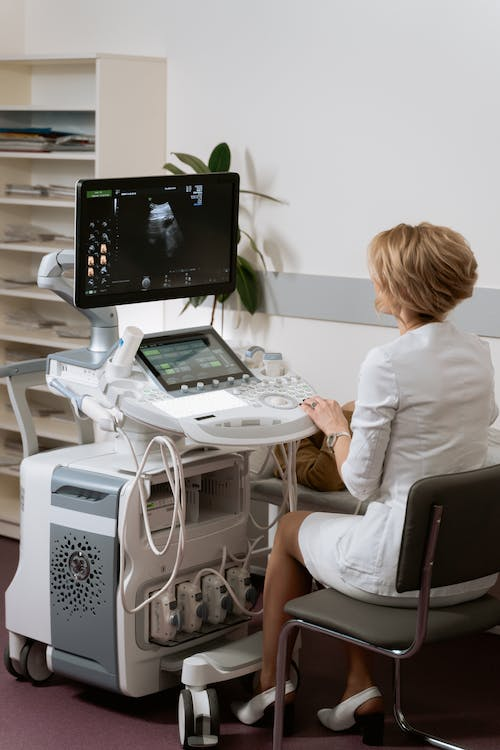
Technology is an essential part of our daily lives in many domains, including work, communication, and survival. We are all so dependent on technology that it is impossible for us to live without it. The application of scientific knowledge to human needs, whether in business, education, or daily life, is commonly referred to as technology.
Significant networking and computer technology developments have changed how doctors practice medicine, and it has given patients access to more advanced treatments. Due to the crippling costs that hold the industry back, it is seeking ways to improve in almost every conceivable area.
There have been numerous inventive developments in medical technology over the centuries. Here are seven ways that technology is helping healthcare today:
- Efficient Procedures
By measuring and collecting data across the entire patient care system using technology, health organizations can see how they’re doing. Access to health records is necessary for many different groups, including payers, patients, and clinicians, for various reasons.
More organizations are integrating their data to ensure that authorized users have access to the documents they require when they require them. This can be achieved by efficient laboratory information system software that makes it simpler for digital patient records to be standardized and stored securely.
Some patients are frequently busy; hence scheduling appointments can be difficult. Patient wait times are decreasing, and hospitals are now hiring more tech-savvy personnel due to the increased use of artificial intelligence and predictive analytics. Thanks to telemedicine technology and patient portals, there are more ways to communicate with medical professionals.
- Surgery
Surgeons are training in virtual reality for both their upcoming and current surgeries. Even surgical procedures and recovery times are being shortened by highly precise robots that help during operations and make some procedures less invasive. Businesses produce and provide software programs that are currently in use and have produced positive results. A recent Harvard Business Review study found that surgeons who received virtual reality training outperformed those with traditional training and even completed operations more quickly and precisely.
Especially, beautification surgeries like blepharoplasty are benefiting from technology. A droopy eyelids surgeon will always test the finished product on the monitor first, show it to their patient and then decide to pick the scapple.
- Drug Development
A new wave of drug research and development is being driven by AI and machine learning in the pharmaceutical industry. These tools are currently being used in various aspects across the industry to aid in speeding up time-consuming tasks. These tasks may include identifying patients who would benefit from a given drug trial and pinpointing specific chemical combinations that may help create the ideal drug.
The process of creating new drugs is currently too time-consuming and expensive. However, there are ways to enhance drug development using strategies ranging from in silico trials to artificial intelligence. These innovative techniques and technologies already rule the pharmaceutical industry and will continue to do so in the future.
- Diagnosis and Error Reduction
Every healthcare professional desires a single all-powerful device that can diagnose and analyze any disease. Technology has led to the development of devices that can measure blood pressure, temperature, heart rate, ECG, oxygen saturation, activity levels, and even sleep status and gait.
Healthtech companies have aided in the earlier and more accurate detection of deadly diseases like cancer by integrating technology into genetics, pathology, and other crucial diagnostic fields.
In addition to giving clinicians more ways to assess their patients’ health, wearable technology like heart monitors also gives them more ways to record and analyze symptoms as patients go about their daily lives.
- Mental Health
One of the newer areas of healthcare that is reaping the benefits of technology is mental health. Virtual reality is thought to be a powerful weapon in the struggle against PTSD, depression, and even Alzheimer’s. Patients who undergo exposure therapy gradually train their brains to become immune to memories of their past traumas until those memories no longer have a negative impact on them.
- Student Training
Two ways augmented reality differs from virtual reality is that users don’t lose touch with reality, and information reaches the viewer as quickly as possible. In the case of medical professionals, it may help surgeons improve their skills and medical students better prepare for real-world operations. By employing this technique, medical students can study the subject without actual people by using detailed and accurate, albeit virtual, representations of human anatomy.
- Ease of access to healthcare
The future of medicine and healthcare is closely tied to patient empowerment and people using technologies to take charge of their health. Through the insurance technology sector, a wider range of people can purchase healthcare. Health trackers, wearables, and sensors are excellent tools for self-discovery and taking back control of our lives.
There is a device for every need, including those related to managing your weight and stress levels, improving your cognitive abilities, and becoming more generally fit and energized. The best thing about these new, technologically advanced devices is that they truly make the patients the center of care. These devices enable people to take charge of their health and make more informed decisions by enabling home health monitoring and remote sharing of results with a doctor.
Conclusion
Digital medical and healthcare technology has the potential to make healthcare systems sustainable. It can provide more affordable, quick, and effective ways to treat conditions like cancer, AIDS, and Ebola. It can also level the playing field between patients and medical professionals. If healthcare professionals want to stay relevant, they must adopt cutting-edge medical technology that can streamline processes, automate tasks, and improve workflows on a scale humans might not be able to achieve alone.



